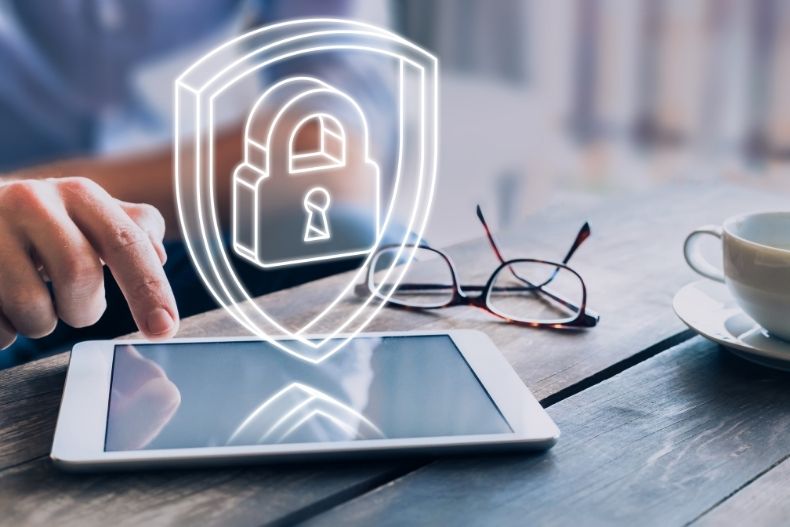Cybercrime is one of the biggest threats to businesses, and increasingly to national security in the modern world. The cat and mouse game played by criminals and law enforcement online means that new and ingenious ways to deceive, hack and exploit businesses are constantly being created and improved upon.
Your customers, insurers and employees expect you to keep company data secure. If you want to keep your company data safe, the below measures form the foundation of good data security.

- Backups
Businesses that don’t regularly back up their data put themselves at risk for catastrophic data loss which could end up bankrupting them. Good data management requires that you backup all proprietary and customer data frequently. Companies with in-house IT departments typically schedule these events at least once a quarter, but another good way to secure your data is to look to an offsite storage facility like TRG Datacenters.
Keeping your data stored, and at the very least data backed-up, off-site helps protect against data theft, and even unforeseen natural disasters like fires, floods and other unpredictable events. Many insurance companies require regular data backups for you to qualify for coverage, and you should also keep any regulatory or compliance protocols in mind when designing your backup plan.
- Two-factor Authentication
The need for the increased use of two-factor authentication has been widely discussed over the last year as some high-profile data breaches have shown businesses just how easy it can be for cybercriminals to hack a single password. Two-factor authentication requires account owners to log in using both a password and some other identifier–usually something like a security question only they know the answer to, an alternative email used during registration or a unique PIN–and it helps keep your accounts safe.
Utilizing two-factor authentication for permissions and as a best practice for employees to follow when creating accounts makes it much harder for thieves to steal your data. Guessing or cracking a single password is one thing, but guessing the answer to a highly specific security question that only the user knows the answer to is much more difficult.
- Employee Awareness
It is a well-established fact that a business’ employees represent the biggest threat to data security. This is not because there is an epidemic of thieving employees looking to steal company data, but because so many people simply don’t understand and plan for the threats. While you cannot control what the cybercriminals are going to do, you can, however, make sure, to a significant extent, that your employees are not compromising your data security.
Many companies are starting to take employee cybersecurity education more seriously, with courses available online that combine walkthroughs of real-life scenarios and up-to-date information on the latest malware, phishing techniques and best and worst practices when it comes to data security both at and outside of the office. This latter point is all the more salient in the era of remote work, with many employees now accessing company data and servers remotely, often using internet connections with questionable security.
- Stress Testing
Stress testing or vulnerability testing refers to regularly scheduled tests, either performed in-house by your IT department or outsourced to a third party, that probe your IT infrastructure for weaknesses. These are weaknesses that could potentially be exploited by hackers and other cybercriminals and include things like poorly written code or out-of-date software and programs you are using that provide convenient backdoors for malicious actors.
Stress testing can expose flaws in your security architecture that you would otherwise have been unaware of and give you better insight into the types of attacks you might be faced with in the future.
Conclusion
You don’t need to spend a fortune fortifying your business against cybersecurity threats, but it is something worth investing in. Implementing two-factor authentication costs you nothing, and anything that improves employee awareness should be considered worthwhile. Finally, making sure your IT infrastructure is as robust as possible, whether that is on-site or off-site is something you should view as part of the cost of doing business in the digital era. Keep all of the above data security best practices in mind and make your business a difficult target for the growing number of cybercriminals out there.